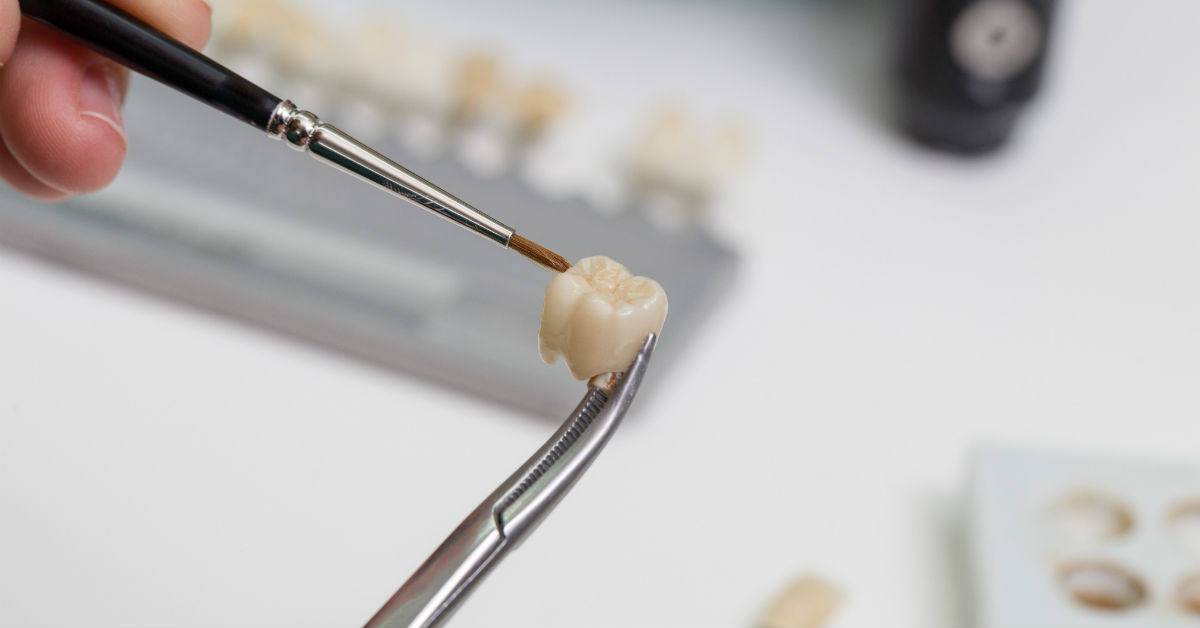
Dental crowns are a great solution for replacing or repairing a damaged tooth. Almost everyone will need a form of repair or replacement at some point. Single crowns are the most common restorative solution with approximately 2.3 million implant-supported crowns being made annually.
COMMON CROWN PROBLEMS
When you have a crown placed at Riverside Dental, we do everything we can to ensure that it will be a long-term solution. But crowns typically have a lifespan of 5 to 15 years and complications can arise.
Some of the more common problems with crowns include root canal treatment. One of the reasons for this is that crowns are placed on teeth that have already been damaged or compromised in some way so they are more likely to have issues later on. We try to troubleshoot this situation by evaluating the health of your tooth and performing a root canal initially, but it’s not a foolproof science.
Crowns can also break or chip due to the wear and tear of everyday use, eating and/or excessive force caused by bruxism.
Your crown can also become loose if the adhering cement washes away.
While the porcelain or metal material your crown is made of is immune to decay, the natural tooth beneath them is not. It can still experience a build-up of bacteria that will cause issues. This is called “recurrent decay.”
Sporting, athletic or car accident injuries are also to blame for damaged crowns.
CROWN REPAIR ISSUES
When you’ve determined that there is a problem with your crown, we have to go about fixing it carefully. We don’t want to cause any more trauma and we want to address the issue at heart. We want to spend considerable time determining if the problem is with the crown and the crown only, or if it is actually the underlying natural tooth.
Another choice dentists and patients need to make is whether to repair or replace a compromised crown. If the issue is more cosmetic, a hairline chip or crack, we can often fix it by bonding with resin or another filling material. If the damage is more extensive, we need to take into account your overall oral health, the condition of the natural tooth and sometimes even your insurance coverage! Some plans only cover replacement after a certain period of time. We also may even want to switch you over to a dental implant rather than replace the crown.
No matter what your situation, we will educate you on all the options and talk through the right solution for you. Whatever you do, please do not try to fix it yourself to save some money. It will cost you dearly in the end. Dentistry is not a place for do-it-yourself!
AVOIDING THE NEED FOR CROWN REPAIR
So how do you avoid all this trouble in the first place? Good oral hygiene! Taking care of your teeth is crucial for longevity, with or without a crown. While your crowned tooth doesn’t need special care, flossing and brushing are important for preventing gum disease and keeping the underlying and surrounding teeth healthy and strong.
It’s also important to quickly get into the dentist if you suspect any issues with your crown. It’s also easier to fix things in the earlier stages than late in the game.



Leave a Reply